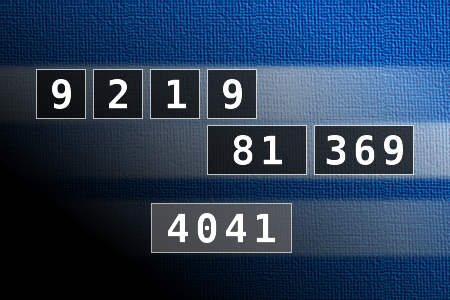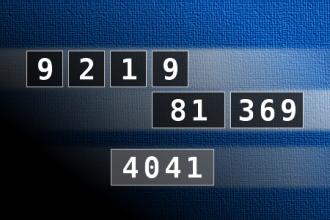Calculate the number 4041
NUMBERMANIA: Calculate the number 4041 using numbers [9, 2, 1, 9, 81, 369] and basic arithmetic operations (+, -, *, /). Each of the numbers can be used only once.Correct answers: 34
The first user who solved this task is Nešić Olivera.
#brainteasers #math #numbermania

